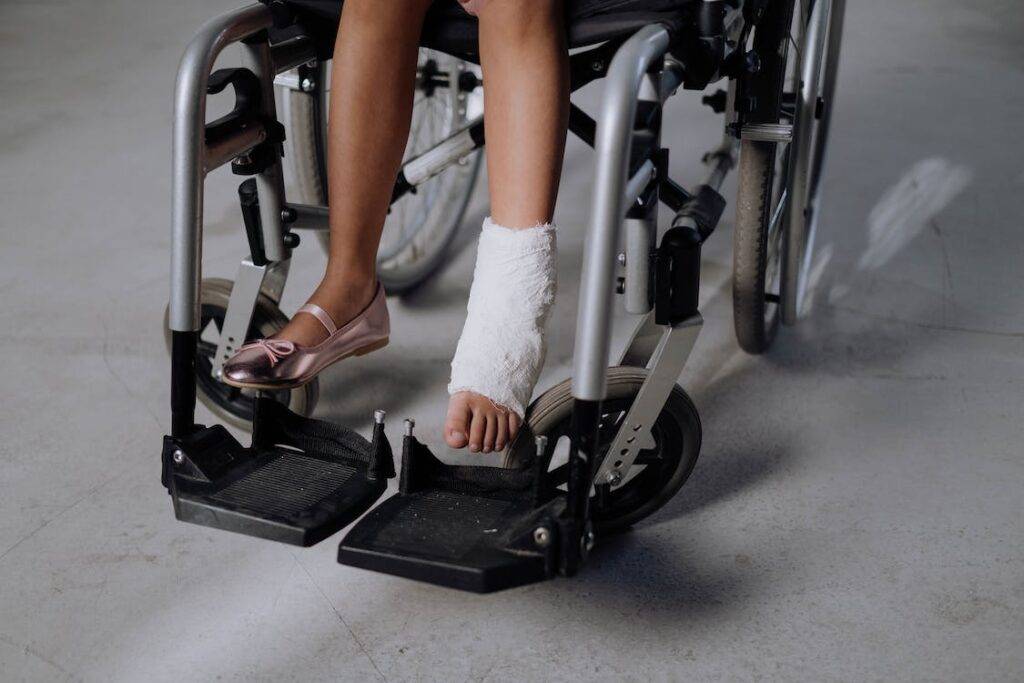This Is What Happens When You Work Out Too Much:
Regular exercise is obviously good for your health. As the University of Michigan Health Service points out, the benefits of a regular exercise program include everything from reducing stress, anxiety, tension, fatigue, and depression to maintaining weight to improving self-esteem. However, too good a thing can be the opposite of a good thing, and this is especially true when it comes to exercise.
As fitness culture increasingly dominates our social feeds, there is a growing pressure (real or perceived) to exercise more often and more intensely than is actually beneficial to our body, personal trainer Corey Berger pointed out. Health Digest.
The result? We are seeing more and more people overtraining (aka overtraining), which Berger defined as training so often and/or so intensely that the body has no chance to recover between workouts. The result is, in a word, stress. And that stress affects your body, mind, and emotional well-being. Here’s a look at what could happen if you exercise too much.

When you work out too much, you risk becoming dehydrated
The problem with thirst is that we don’t really feel it until we get over our thirst. In fact, we don’t start to feel thirsty until we are technically dehydrated, which means the body has lost more water than it has replenished. According to the Merck Handbook, adults should drink at least six glasses of liquid per day. However, that intake should be increased with prolonged exercise. Our body’s need for water also increases in hot weather, when our temperature is high and when we follow a food plan that discourages fruit consumption, such as the keto diet.
It’s normal to feel thirsty after a workout, but exercising excessively and not drinking enough, especially if you’re on a keto diet, can lead to chronic dehydration, certified personal trainer Carol Michaels told Health Digest. Chronic dehydration can damage the kidneys and lead to other problems such as hypertension and even dementia.

You could get injured if you work out too much
Exercising too often, too intensely, or with too much emphasis on a muscle group is a preparation for physical injury, which can occur in a number of ways, according to physical therapist Heather Jeffcoat. For example, there is an acute injury, such as a sudden muscle tear during exercise. Acute injuries can occur for a variety of reasons related to overtraining, including fatigue. There is also cumulative damage, which occurs over time due to recurrence. An example is a stress fracture, a small break in a bone (often the foot) that results from the application of repetitive force.
Training certain muscle groups while excluding others can increase the risk of cumulative and acute injury. In Jeffcoat’s patients who exercise too much, tendonitis is common. Tendonitis is inflammation of the tissue that connects muscle to bone. It’s a classic sign of “doing too much too soon,” Jeffcoat told Health Digest, which means you’re moving more than your own body can handle at any given time.

Working out too much could prevent results
Ironically, if you train too much, you risk diminishing returns over time, certified personal trainer Anna Em told Health Digest. In the short term, overtraining can lead to persistent muscle soreness and fatigue. In some cases, it can also lead to “adrenal insufficiency,” a hormonal condition associated with muscle fatigue and weakness, among other symptoms. Either way, the quality of the workout decreases until the body is finally rewarded with a well-deserved rest.
Overtraining can also be counterproductive in the long run. Em noted that overtraining often leads to a period of days, weeks, or even months where it becomes seemingly impossible to muster the strength to even show up for a workout, let alone perform at the level needed to continue seeing a profit.
The result is at most a plateau. More likely, there will be some degree of loss of previous results. What follows is often an overzealous return to exercise after too short a rest. Unfortunately, overtraining indicators only appear after the damage has already been done, which means the best way to avoid it is to make sure you give yourself plenty of rest and time to recover between workouts.

You might gain weight if you work out too much
Excessive exercise or overtraining can lead to weight gain, CrossFit coach Wendy Shafranski told Health Digest. And as you may have guessed, it’s all about hormones. On the one hand, excessive exercise can cause the body to produce insufficient hormones to continue to support effective muscle-building training. On the other hand, too much exercise can also lead to an overproduction of the hormone cortisol.
Cortisol plays an important role in helping the body adapt to stress. One way to do this is to make you crave more energy (presumably to deal with all that stress). And what is energy? calories. So when we overwork ourselves, we put a strain on our bodies. Increased stress raises cortisol levels. As a result, we may start craving high-calorie foods. Hello, stressful eating, and hello weight gain!

Working out too much could hurt your brain
Regular exercise is known to be good for the brain, including memory function and learning ability. Regular exercise has even been linked to a reduced risk of Alzheimer’s disease. But we are talking about moderate exercise. Excessive exercise, on the other hand, can be detrimental to brain function, both memory, and learning.
In a 2019 study published in the Journal of Physiological Sciences, scientists noted that rats undergoing “overtraining” exercise suffered from learning and memory problems compared to rats undergoing only “moderate” exercise conditions.
But what about people? In another 2019 study, published in the journal Current Biology, scientists induced overtraining in a group of endurance athletes and then tested their cognitive function while performing fMRIs of their actual functioning brains. The researchers found that overtraining led to more impulsive decision-making, which they attributed to overtraining-induced “cognitive fatigue.”

You could experience mood swings if you work out too much
Overtraining, or too much exercise, can impact your emotional well-being, according to CrossFit trainer Wendy Shafranski. According to Shafranksi, hormones are to blame, in this case, both cortisol and epinephrine. Epinephrine plays an important role in controlling your “fight or flight” impulse, and it can make you nervous, to say the least.
The body’s production of cortisol and epinephrine increases in response to stress. Exercising so much and/or so intensely that you never give your body a chance to recover from the exertion causes physical fatigue, i.e. stress. In addition to food cravings, which can lead to weight gain, higher levels of cortisol can cause mood swings and irritability. Cortisol and epinephrine can also lead to insomnia or restless sleep, both of which can make mood swings and irritability worse. Other emotional symptoms associated with overtraining include depression and loss of motivation.

Working out too much could lead to body dysmorphia
Even if your habit of over-exercising isn’t actually causing you to gain weight or lose your hard-earned results, it might make you think you’re doing it, Michelle Houston, personal trainer and certified health coach told Health Digest. While virtually everyone is at least somewhat bothered by a physical imperfection (and let’s face it, we all have them), people who develop body dysmorphic disorder (BDD) become obsessed with perceived flaws, according to the Cleveland Clinic.
This disorder can be caused by a number of factors, including biological, neurological, and environmental factors. This means that some people are more prone to BDD than others. Although exercise is a healthy activity, people with BDD can start exercising excessively – and it can be debilitating. Those with BDD often take drastic measures to “fix” their imaginary flaws by increasing their exercise routine, dangerously restricting their food, or undergoing repeated cosmetic surgery.

Your periods could become irregular if you work out too much
One way a woman might know that she has been working out too much is if her periods become irregular or cease altogether (a condition known as amenorrhea), certified personal trainer and nutritionist Matt Wismer told Health Digest. That being said, it would be unusual for a woman to experience amenorrhea from excessive exercise alone. Instead, amenorrhea is more commonly seen in women who are both exercising excessively and restricting their eating to the point where they are at a low body weight relative to their frame (this doesn’t necessarily mean that the woman has an eating disorder, although it could).
The combination of intense exercise and low body weight makes the body believe it is in a starvation state, USC Fertility explained. In response, the body begins conserving energy any way it can, including pausing organ systems that are not absolutely essential for survival. One such organ system is the reproductive system. Some medical experts believe that the stress hormone cortisol also plays a role in pausing the reproductive system. Infertility can occur, but it can be treated with medication. However, USC Fertility explained that “it is preferable to optimize body weight by improving nutritional intake before trying to conceive.”

When you work out too much, you risk developing premature osteoporosis
Infertility is just one of the problems associated with exercise-induced amenorrhea. When the reproductive system of the female body is essentially on vacation, the production of estrogen drops sharply. Lower estrogen levels can lead to osteoporosis, a bone disease in which bone density decreases, causing bones to actually look porous under the microscope. Porous bones are fragile and prone to breakage. In advanced cases of osteoporosis, bones can be broken by something as small as a cough.
Osteoporosis is relatively rare in women under 50, but when it does occur, it typically accounts for one-third of what certified personal trainer and nutritionist Matt Wismer and medical experts call the “female athlete triad.” (the other two-thirds are made up of exercise-induced amenorrhea and eating disorders). Another element that accompanies the triad is an increased risk of a heart attack later in life (due to long-term estrogen deficiency).

You could develop this rare but terrifying condition from
working out too much
One of the scariest side effects of overtraining is a life-threatening condition called rhabdomyolysis. Fortunately, rhabdomyolysis is relatively rare; only 26,000 people develop it each year. It involves a breakdown of muscle tissue, releasing a toxic protein into the bloodstream. The protein myoglobin can seriously damage the kidneys, so one of the symptoms is dark red or tea-colored urine.
Rhabdomyolysis can be caused by any form of muscle damage, but it is most commonly associated with overuse, especially in extreme heat, which leads to even more rapid muscle breakdown. Rhabdomyolysis can be made worse by dehydration, which is also linked to excessive exercise. It is mainly observed in endurance athletes, the military, and firefighters. However, others may be vulnerable, including elderly people who fall, cannot get up, and go undetected for long periods of time.

“Time and health are two precious assets that we don’t recognize and appreciate until they have been depleted.”
Denis Waitleyy
You can also read: What actually happens in your body when you go to the gym?
If you desire to get any product that makes your life easier you can check this link:







